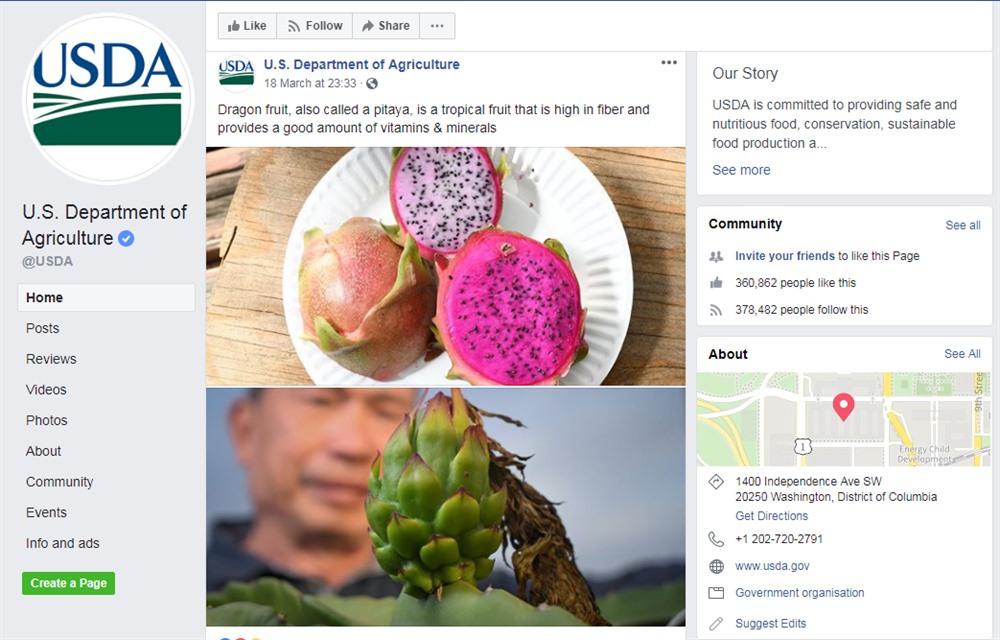
 |
| USDA has posted a status praising the strength of dragon fruit. — VNS Photo Phương Thảo |
HÀ NỘI — The United States Department of Agriculture (USDA) has posted an introduction to the benefits of dragon fruit, a key export of Việt Nam.
On its fanpage, the department wrote: “Dragon fruit, also called a pitaya, is a tropical fruit that is high in fiber and provides a good amount of vitamins & minerals.”
The status immediately received a number of positive comments, shares and likes from US people.
Dragon fruit is popular around the world because of its sweet and fresh taste. It is also good for the health and acts as antioxidant - prevent cancer and diabetes, heart and blood problems, and improve the digestive system.
According to the USDA’s Composition Databases, 100 grammes of dragon fruit contain approximately 60 calories; 1.2 grammes of protein; 13 grammes of carbohydrates; 3 grammes of fibre and 10 percent of the daily value (DV) for magnesium.
It also had trace amounts of other nutrients, like B-complex vitamins and vitamins A and C as well as calcium and iron, the USDA stated.
Việt Nam exported five kinds of fresh fruit to the US, including dragon fruit, rambutan, longan, lychee and star apple.
According to a report from the Department of Crop Production under the Ministry of Agriculture and Rural Development, in 2018, fruit and vegetable export value reached US$3.8 billion, a year-on-year increase of over 47.3 per cent.
Fruit accounted for over 80 per cent of the total value. The main export fruits include dragon fruit (accounting for $1.1 billion), followed by bananas, rambutan, longan, lychee, mango, mangosteen and durian. — VNS


















.jpg)




.jpg)



